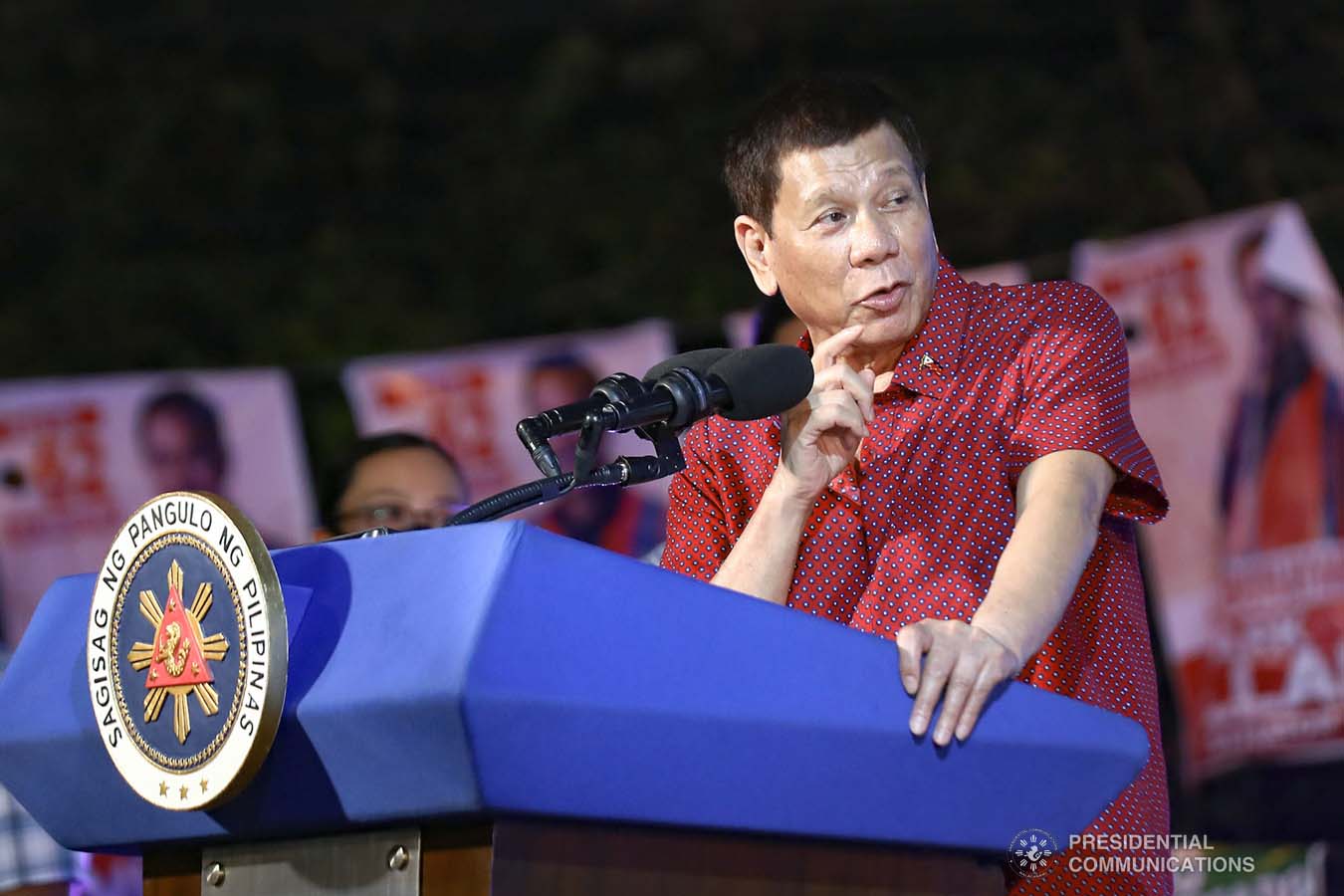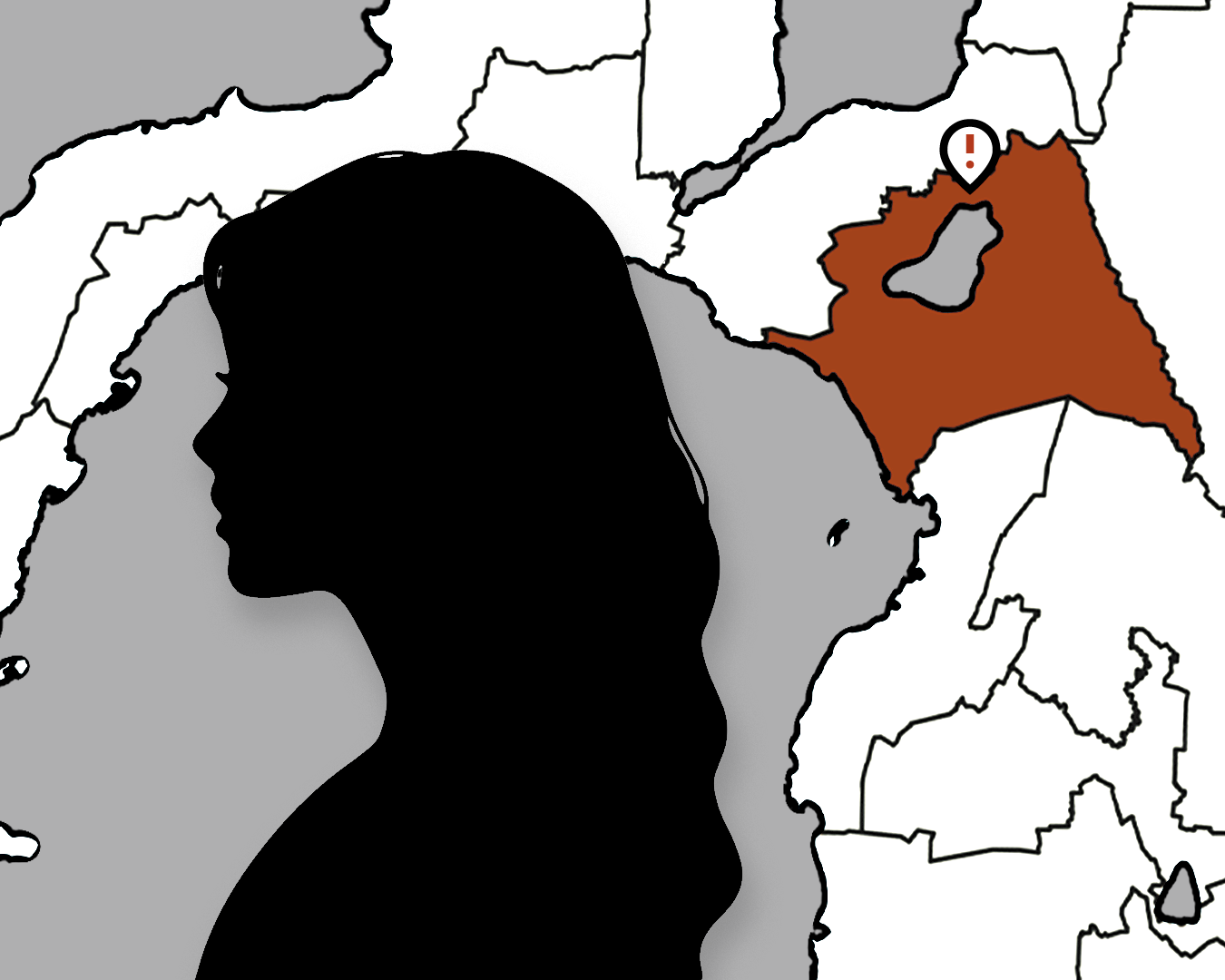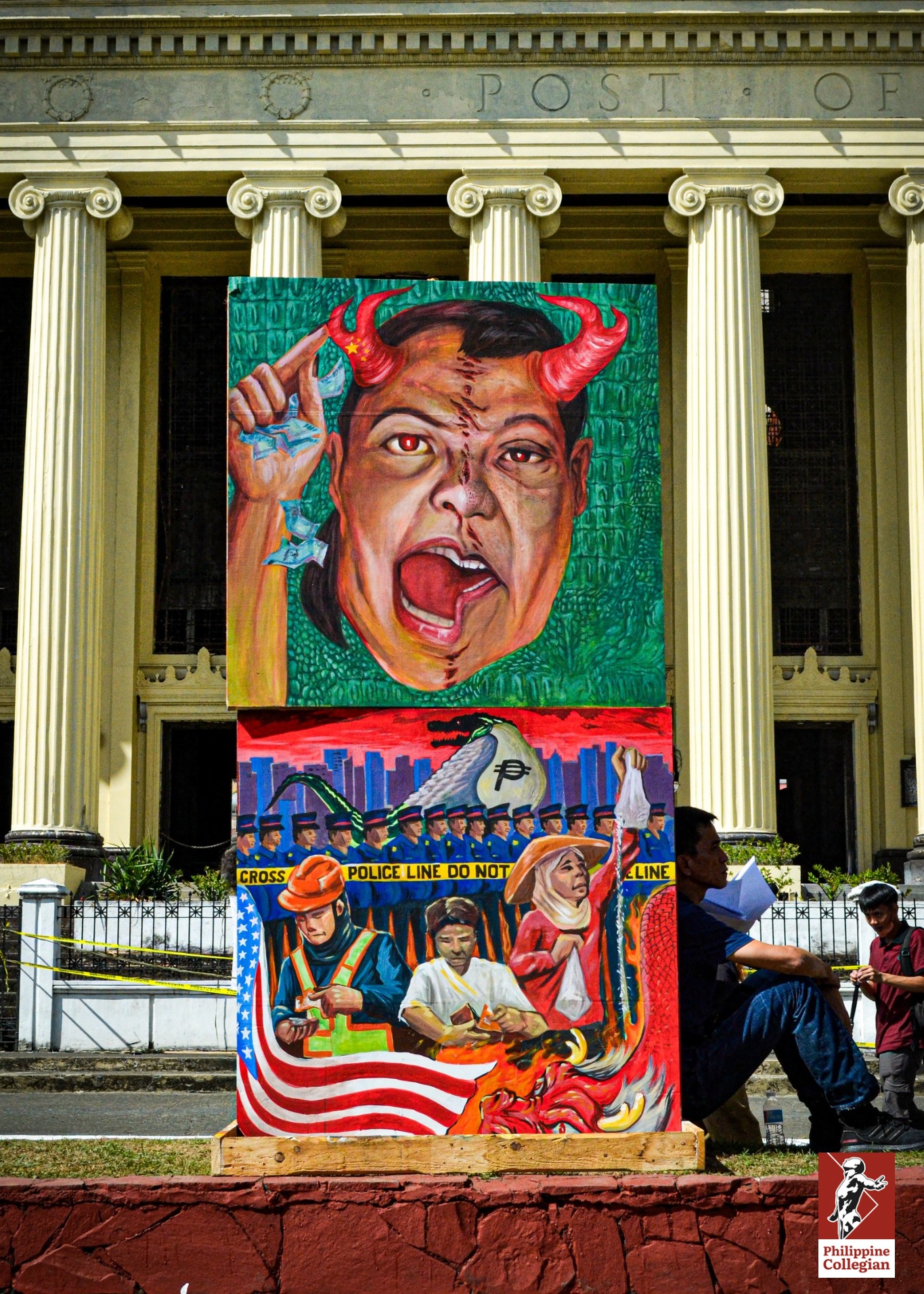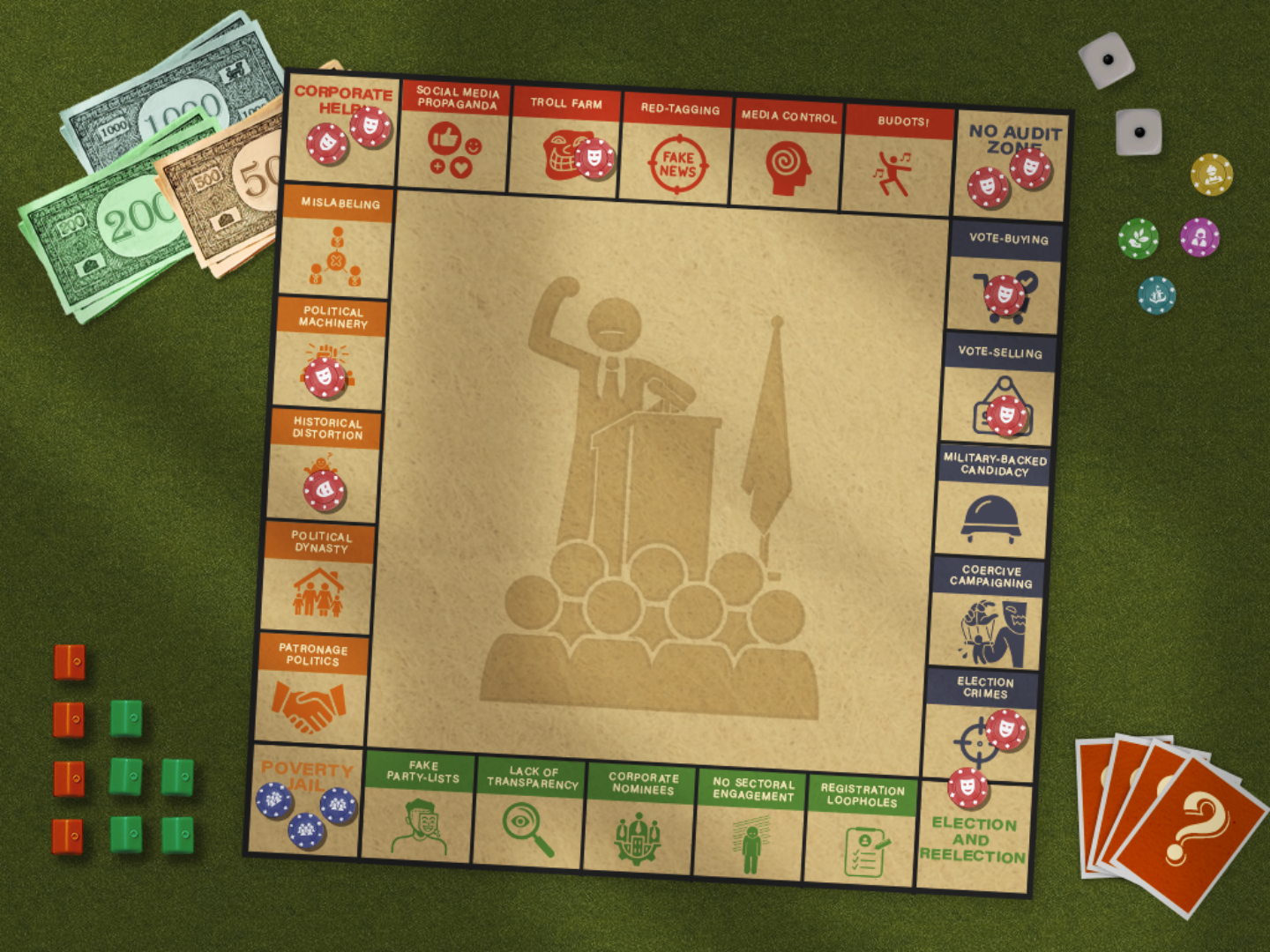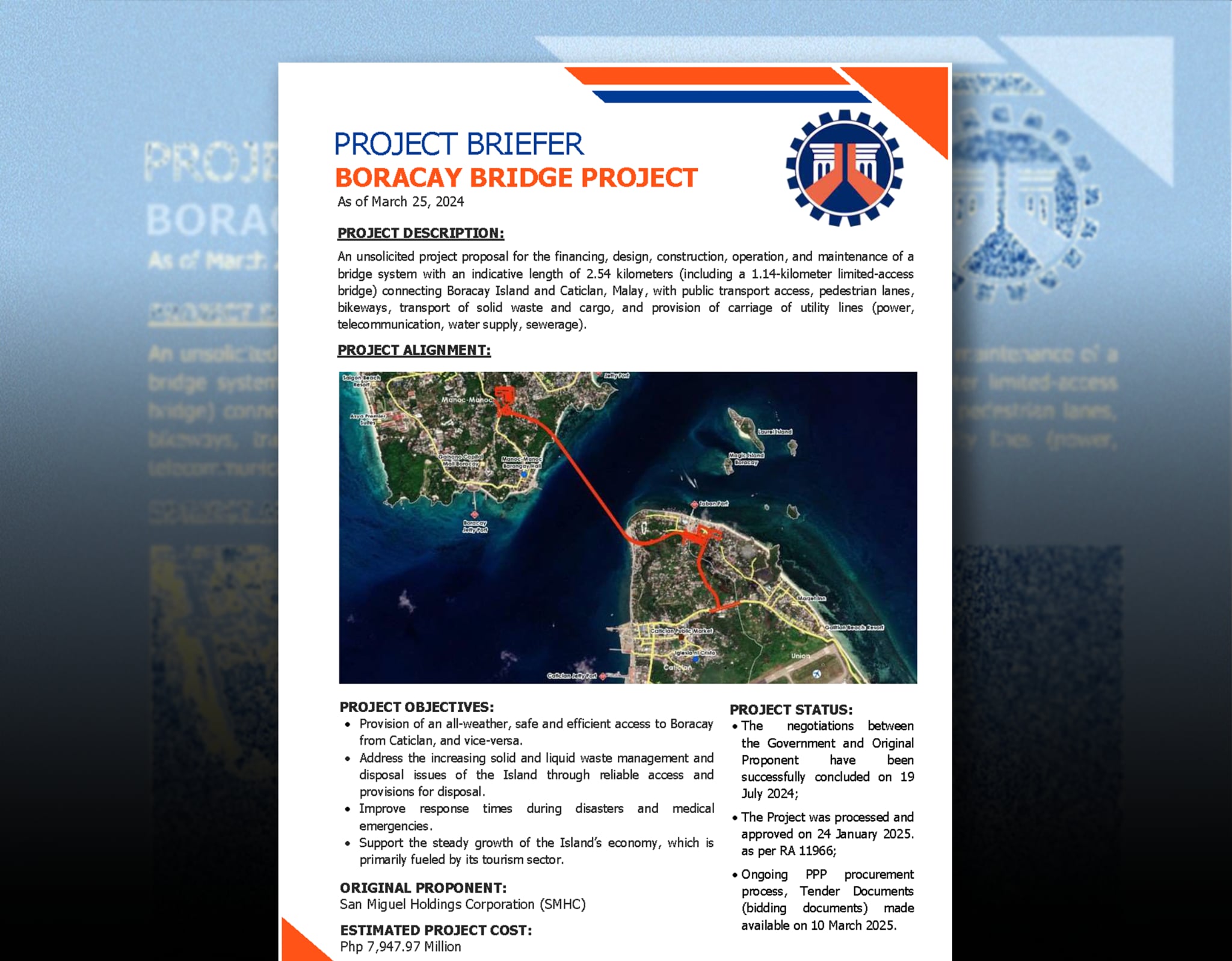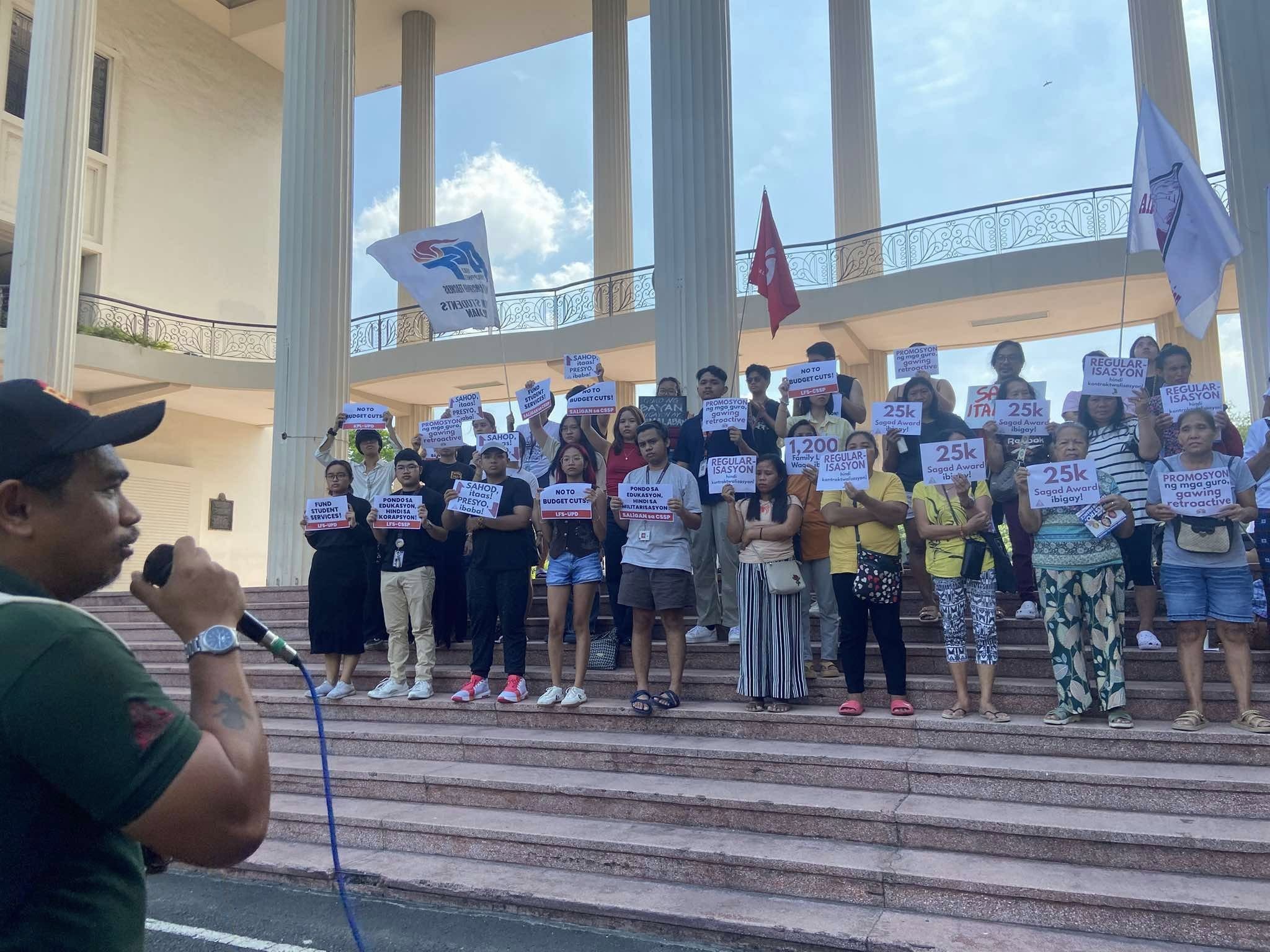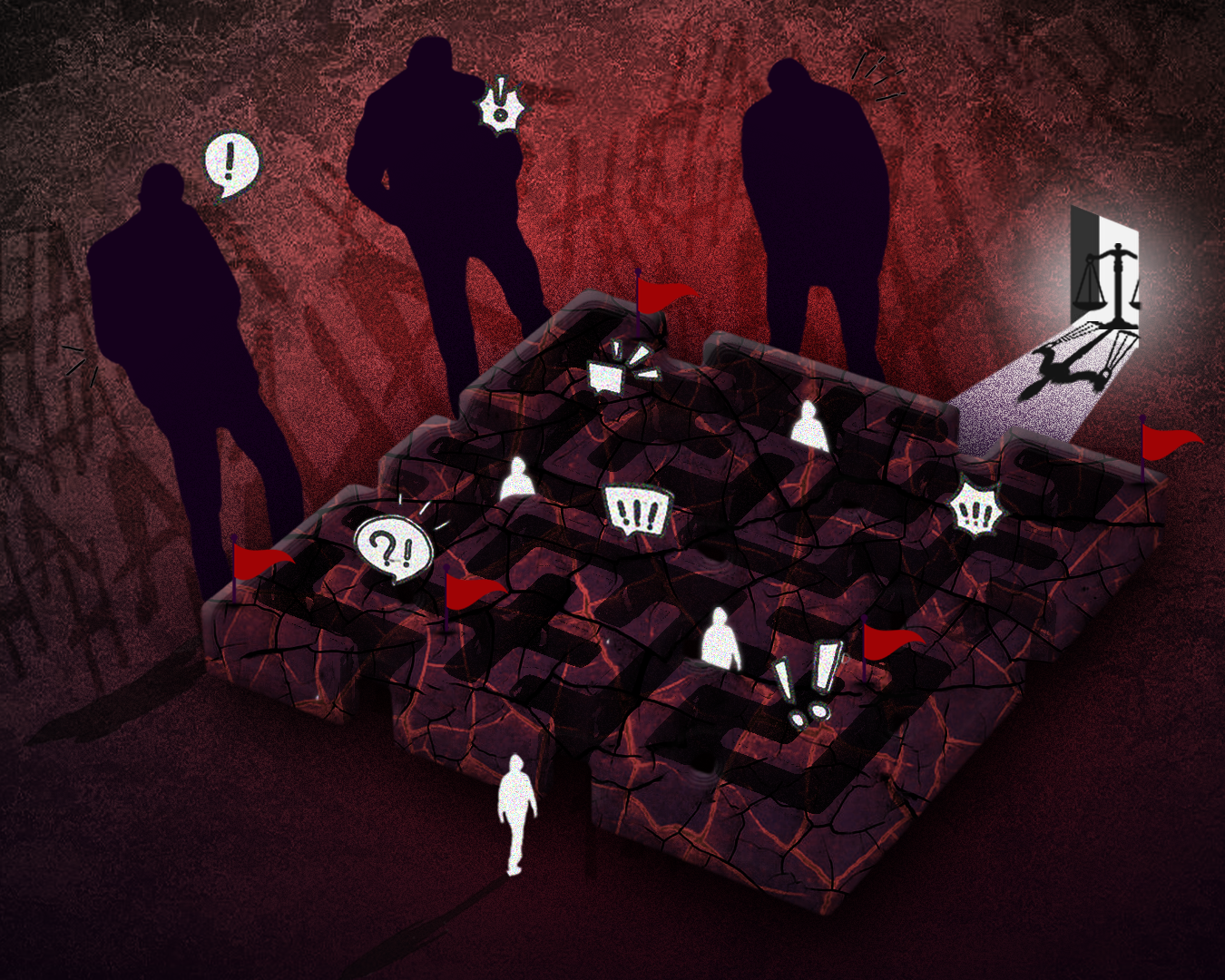By CHRISTIAN CHUA, KEIAN FLORINO, YSABEL VIDOR & YESSA TAGUM
President Rodrigo Duterte first emerged as a staunch advocate against criminality, illegal drugs, corruption, and oligarchy. For most of his presidency, the nation stands testament to how he has devoted much of the country’s resources to such pursuits—all while sidelining the poor and compromising the welfare of other sectors.
As the Filipino heads to the polls to choose another president, the Collegian looks back on how he sought to realize his promises in 2016 and what kind of legacy he was able to etch out while reveling in power for six years. The catalog of his frustrated pledges to the Filipinos is now for the next administration to dwell on.
Workers
To mitigate the effects of the oil price surge, Duterte is currently deciding on the approval of the four-day workweek. Presidentiables, however, have their own stances and plans.
Labor leader Leody De Guzman said workers must be given 30-percent overtime pay for the four days of work to compensate for the other days they will not work. Similarly, Vice President Leni Robredo, said that reducing work hours must not lead to pay cuts. Meanwhile, Manila Mayor Francisco “Isko Moreno” Domagoso and Sen. Manny Pacquiao oppose the scheme as other industries need physical presence to be more productive and efficient.
But the presidentiables’ talk about work hours will remain shortsighted if workers are not given a decent living wage in the first place. The last time wage increased in Metro Manila was in 2018, which brought it to the current P537. A family of five, according to the National Economic and Development Authority, needs P1,500 per day. Of the presidential frontrunners, only De Guzman, Pacquiao, and Robredo have expressed willingness to increase the minimum wage. Since 2018, the Makabayan bloc has been lobbying for a bill in Congress that will raise the national minimum wage to P750.
Agriculture
In February 2019, the Duterte administration passed the Rice Tariffication Law (RTL). The measure sought to lower the price of rice by allowing for an unlimited import of cheaper rice. The law, however, has only hurt local farmers as palay farmgate prices plummeted to P11 to 17 per kilo—forcing many farmers to contend with little to no profit amid rising production prices and lack of subsidies given by the state.
Domestic agriculture has dwindled even more when the Department of Agriculture’s fund allocation fell to 3 percent of the national budget from an already horrid average of 3.6 from 2017 to 2021. The administration's blatant negligence and profit-oriented policies, like the RTL, have made for the 31.6 percent poverty incidence among farmers. This sector, based on the latest report of the Philippine Statistics Authority, is still the poorest since 2006, along with the fisherfolk.
Over three years after the RTL's ratification, peasant group Kilusang Magbubukid ng Pilipinas (KMP) remains keen on its campaign to junk the law. And while nearly all presidential candidates have promised increasing state support to farmers—and the agriculture sector, in general—no one has shown concrete solutions on how they will implement their plans into real policies once elected.
Transportation
To supposedly accelerate the country's economic development, the Duterte administration has sought to implement its centerpiece program, “Build, Build, Build," priced at P8.4 trillion, over the course of six years. While the president vowed about ushering the Philippines into a “golden age of infrastructure,” only 18 of over 112 projects—mostly roads and bridges—are expected to be delivered in full by mid-2022.
Alongside Duterte’s infrastructure drive, his Department of Transportation remains keen on implementing the Public Utility Vehicle (PUV) Modernization Program, to the detriment of PUV drivers and operators who will be forced to buy million-peso electric vehicles.
And when the COVID-19 pandemic hit the country, the existing public transport shortage had not been any clearer with commuters enduring long lines and overcrowded PUVs. But instead of providing better public transportation, the government has instead decided to pursue road-building projects, like the Pasig River Expressway, which groups say would only harm the environment without solving the metro’s traffic problem.
Transport advocate Move as One Coalition emphasized the need for the current and coming administrations to center on the welfare and mobility experience of Filipino commuters alongside PUV operators and drivers in pursuing a more efficient transport system.
Indigenous Peoples
Indigenous peoples have been at the receiving end of state-sponsored attacks. Under Duterte, such attacks took various forms; from red-tagging and forced closure of Lumad schools, and worse, to killing teacher volunteers. Just last February, five Lumad school volunteers—including UP Diliman alumni Chad Booc—were brutally killed by the military in Davao de Oro.
The state also killed IPs who dared to defend their ancestral lands. In December 2020, nine Tumandok were killed by the military in Panay Island while another 17 were arrested. The Tumandok are known for their strong opposition to the Jalaur Mega Dam Project.
With the upcoming 2022 polls, various IP rights advocates urge the presidentiables to protect their rights. KMP and National Network of Agrarian Reform Advocates-Youth have expressed their disapproval over Robredo’s support of the construction of New Clark City, as the project violates the Aetas’ right to their ancestral lands. Weeks after, a coalition of IP groups signed an agreement with the Robredo-Pangilinan tandem to promise that the candidates will ensure the protection of their rights and increase their participation in policy-making.
De Guzman, meanwhile, floated the idea of creating autonomous regions for IPs. Other presidentiables have not commented on the issues faced by IPs.
Environment
In 2016, then-candidate Duterte pledged that he will ensure all mining companies comply with the strictest environmental standards. When he won, Duterte appointed staunch anti-mining advocate Gina Lopez as his Department of Environment and Natural Resources (DENR) secretary.
However, retired military general Roy Cimatu replaced Lopez in 2017 after mining firms allegedly lobbied members of the Commission on Appointments to reject her appointment. Duterte also reversed his anti-mining stance in 2020 when he lifted the nine-year moratorium on signing new mining contracts in the country, and overturned Lopez’s open-pit mining ban last year.
The Duterte administration also approved the environmental compliance certificate of the Kaliwa Dam despite advocates’ concern about its effects on nearby indigenous people’s community and ecosystem. In 2019, Cimatu also greenlighted the construction of Bulacan Aerotropolis, a reclamation project that would destroy 2,500 hectares of mangrove areas and threaten the livelihood of hundreds of small fisherfolk.
For the Youth Advocates for Climate Action, the next administration must undo Duterte’s massive reclamation projects which risk communities and their environment. The group also urged the next president to put the interests of indigenous peoples, affected communities, and the environment first before any development project.
Human Rights
Duterte built his administration on the premise of eradicating illegal drugs within the first three to six months of his term. However, Duterte’s war on drugs has only enabled state agents and vigilante groups to kill up to 30,000 suspected drug users, most of whom were living in poor communities, according to the 2021-2022 report of Amnesty International.
The administration has also weaponized the law to launch an all-out war against dissent. In 2018, Duterte created the National Task Force Against the Local Communist Armed Conflict (NTF-ELCAC), which has red-tagged virtually anyone who disagrees with his administration. 424 activists and community organizers have been killed due to red-tagging since July 2016, according to rights group Karapatan.
Attacks against critics further escalated after Duterte signed the Anti-Terrorism Law in July 2020, which granted unchecked power to the government to designate and jail suspected terrorists. Since the law was signed, numerous activists have been jailed and killed, most notably the nine victims of the “Bloody Sunday” massacre in Southern Tagalog in March 2021.
Karapatan urged 2022 presidentiables to hold Duterte and other perpetrators accountable for the “murderous” war on drugs by cooperating with the investigation of the International Criminal Court and other international bodies. The rights group also reiterated their longstanding call to abolish the NTF-ELCAC.
Peace Talks
Then-candidate Duterte promised that, under his term, the government will be committing again to peace talks with the National Democratic Front in the Philippines (NDFP). Duterte abided by his words, at first, as he declared a unilateral ceasefire. This, until the 39th Infantry Battalion violated the agreement by attacking the New People’s Army deployed in Makilala, North Cotabato in 2017.
Duterte immediately withdrew from the ceasefire, which was followed by the unilateral termination of the Joint Agreement on Safety and Immunity Guarantees (JASIG). Ending JASIG only intensified state-backed attacks against peace consultants and progressives.
Crackdown against NDFP peace consultants soon followed. In January 2019, Randy Malayao became the first consultant to be murdered. Five more were killed, either by vigilantes or state forces, the most recent of which was Rustico Tan last May 28, 2021, in Cebu.
The crackdown against peace negotiators shows no sign of stopping. Still, most presidential candidates do not promise to abolish the NTF-ELCAC. Even opposition bet Robredo said she would only regulate the NTF-ELCAC should she win, and support localized peace talks which, according to NDFP, would not address the root causes of the conflicts. ●
